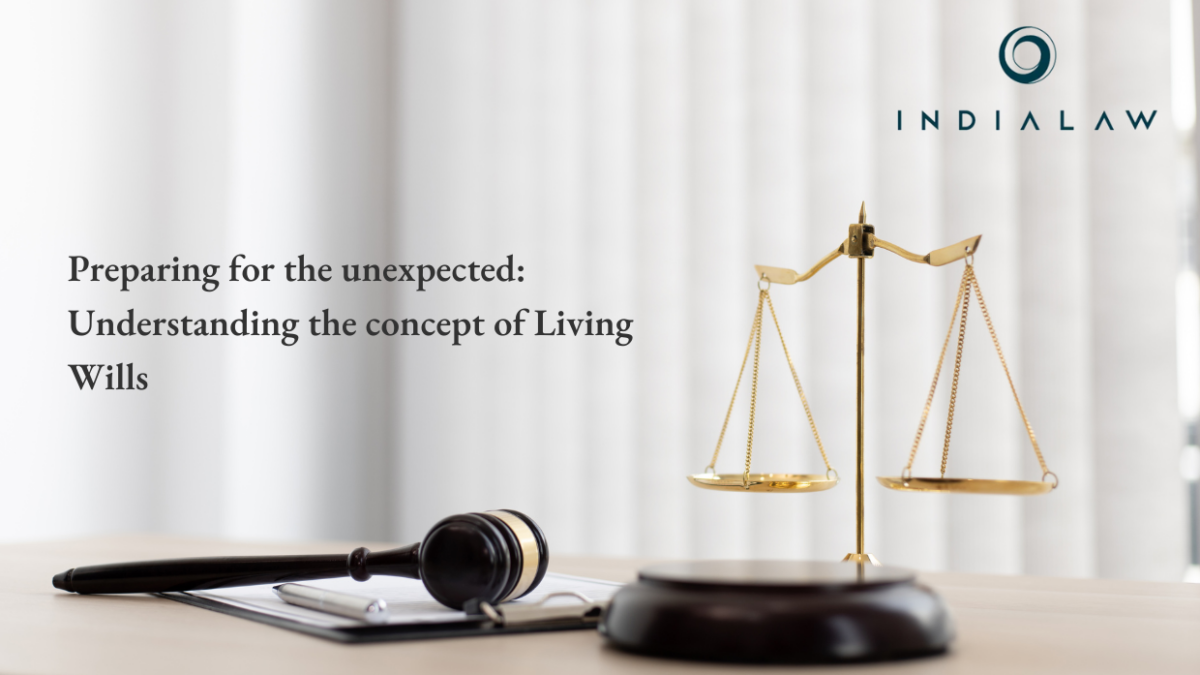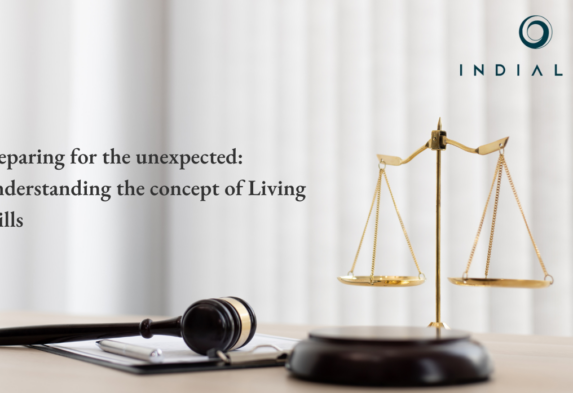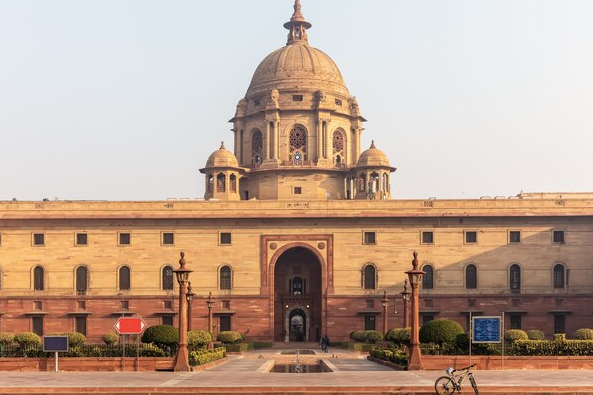Preparing for the unexpected: Understanding the concept of Living Wills


An unfortunate or unexpected incident in life can come up at any time, this emphasizes the importance of a ‘Living Will’. A ‘Living Will’ in legal terms is known as an ‘Advance Medical Directive’ which empowers a person, to assign another person, power to make decisions regarding their medical treatment when the former is in a comatose or unconscious state. In this article, we will explore the horizons of the current status of Living Wills in India, its legality, and why you should think of making one for yourself.
Recently, a Mumbai-based doctor submitted his Living Will with the custodian appointed by the Brihanmumbai Municipal Corporation (“BMC”). The BMC was appointed as the competent authority, in relation to Mumbai, per the guidelines that were laid down by the Hon’ble Supreme Court (“SC”) in Common Cause (A Regd. Society) v. Union of India and Anr. [i] (“said Guidelines”).
The genesis of Living Wills begins with a constitution bench of the SC[ii], which, in the 2018 decision in the abovementioned case of Common Cause (A Regd. Society) v. Union of India and Anr[iii]. (“2018 judgment”), unanimously held that passive euthanasia is permissible, and an ‘Advance Directive’ could be executed by a patient in order to express their wishes, in this regard. In furtherance of this, the bench laid down various guidelines encompassing aspects such as firstly, the competence of the executor and the method in which such a directive can be made; secondly, the contents of the directive, ways to record and preserve the directive, and the registration procedure; and finally, under what circumstances can the medical board refuse such a directive and the revocation/inapplicability of such a directive.
In the alternative to there being no Living Will, the SC additionally proposed the constitution of a Medical Board (“Primary Board”) whereby, it is the duty of the Primary Board to apprise the family members of the terminally-ill patient about the potential impacts of withdrawing their medical treatment; the Primary Board is then required to get the family member’s consent in writing to proceed with such withdrawal. This would be termed as a ‘preliminary opinion’. Subsequently, if the Primary Board proposes to withdraw the medical treatment the same has to be intimated to the appropriate jurisdictional Collector, who would again constitute a Medical Board comprising the Chief District Medical Officer as the Chairman and three experts from the medical field for a secondary opinion (“Secondary Board”).
If the Secondary Board is satisfied, that withdrawal of medical treatment is the appropriate route to be taken, in that event they may approach the Judicial Magistrate First Class (“JMFC”) for that district. The JMFC would visit the hospital and make necessary inquiries, and only after being satisfied, may endorse the decision of the Secondary Board to withdraw the medical treatment to the terminally-ill patient.
In the event, that the decision of the JMFC is contrary to the Secondary Board or in any situation where either of the abovementioned authorities decides not to withdraw the medical treatment to the terminally-ill patient the family member may approach the Hon’ble High Courts under Article 226 of the Constitution and the Chief Justice thereof may constitute a Division Bench to hear the particular issue. This, in a nutshell, is what was laid down by the Constitution Bench in the 2018 judgment.
Thereafter, in the year 2023[iv], a miscellaneous application was filed by the Indian Council for Critical Care Medicine before the SC, seeking clarifications/modifications to the 2018 judgment as the previously issued guidelines were impractical, complicated, and cumbersome to execute by medical professionals. After hearing the contentions of the applicant, the SC[v] went on to modify the said Guidelines and made certain additions, to incorporate the details of the authorized person in the directive; additionally, a procedure for authenticating the directive by attesting it before a notary or Gazetted Officer was also prescribed.
The modification of the said Guidelines has removed the role of the JMFC concerning the registration of the directive and has put the obligation on the competent officer of the local Government or the Municipal Corporation or Municipality or Panchayat, as the case may be, to appoint a custodian for the said directive. The verification of the opinion of the Secondary Board by the JMFC has also been struck off.
In early 2024, a public interest litigation[vi] was filed by the aforementioned Mumbai-based doctor before the Hon’ble Bombay High Court seeking compliance by the State Government of the said Guidelines as, at the relevant point of time, no custodian for Living Wiils had been appointed by the competent authority, i.e., BMC. However, on 16th March 2024, it was reported that he had submitted his Living Will to the custodian appointed by the BMC.
The concept of a Living Will or an Advance Medical Directive permits family members to respect the wishes of a terminally-ill patient and to direct the doctors to end their medical treatment. Additionally, it facilitates people to record their wishes when it comes to the family person/guardian that they trust to take the ultimate decision for them. The directive also acts as a relief for the family members, knowing that the person has entrusted them or given them the authority to make a decision, as stated by them in the directive when they were in a conscious state before such an unfortunate incident.
[i] (2018) 5 SCC 1, decided on 9th March 2018.
[ii] The coram comprised of Dipak Misra, C.J., and Dr. A. K. Sikri, Dr. D. Y. Chandrachud (as their Lordships then were), A. M. Khanwilkar, and Ashok Bhushan, JJ. The opinions were delivered by Dipak Misra, C.J., Dr. A. K. Sikri, Dr. D. Y. Chandrachud, and Ashok Bhushan, JJ.
[iii] Supra note i.
[iv] Common Cause (A Regd. Society) v. Union of India and Anr (2023 SCC Online SC 99), decided on 24th January 2024.
[v] The coram comprised of K. M. Joseph, Ajay Rastogi, Aniruddha Bose, Hrishikesh Roy and C. T. Ravikumar, JJ. The decision was delivered by K. M. Joseph, J.
[vi] Prof Dr. Nikhil D. Datar v. State of Maharashtra and Ors., PIL No. 3 of 2024.




